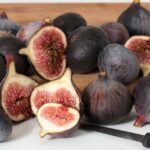Yeast infections are a common and uncomfortable condition that affects many people. While there are medications and treatments available, your diet can also play a significant role in preventing and managing yeast infections. Here is your ultimate guide to diet and yeast infection: foods to eat and avoid.
Foods to Eat:
1. Probiotics: Probiotics, found in fermented foods like yogurt, kefir, and sauerkraut, help boost the good bacteria in your gut and prevent yeast overgrowth.
2. Garlic: Garlic has antifungal properties that can help fight off yeast overgrowth. Add it to your meals or take a garlic supplement.
3. Leafy Greens: Leafy greens like spinach, kale, and collard greens are packed with vitamins and minerals that boost your immune system and help fight off infections.
4. Whole Grains: Swap refined grains for healthful whole grains like brown rice, quinoa, and oats. These grains are high in fiber, which helps keep your gut healthy and balanced.
5. Lean Proteins: Choose lean proteins like chicken, fish, and tofu over red meat. These proteins are easier to digest and won’t feed yeast overgrowth.
Foods to Avoid:
1. Sugar: Sugar feeds yeast overgrowth, so it’s best to avoid sugary foods like candy, soda, and pastries.
2. Refined Grains: Refined grains like white bread and pasta are stripped of their nutrients and can spike your blood sugar levels, which can contribute to yeast overgrowth.
3. Alcohol: Alcohol is high in sugar and can disrupt the balance of bacteria in your gut, leading to yeast overgrowth.
4. Dairy Products: Some people find that dairy products like cheese and milk can contribute to yeast overgrowth. If you’re prone to yeast infections, it may be best to limit your intake of dairy.
5. Processed Foods: Processed foods like chips and snack bars are often loaded with sugar and preservatives, which can disrupt the balance of bacteria in your gut and contribute to yeast overgrowth.
By following these dietary guidelines, you can help prevent and manage yeast infections. However, it’s important to note that diet alone may not be enough to treat yeast infections, and you should always consult with a healthcare professional if you’re experiencing symptoms.




